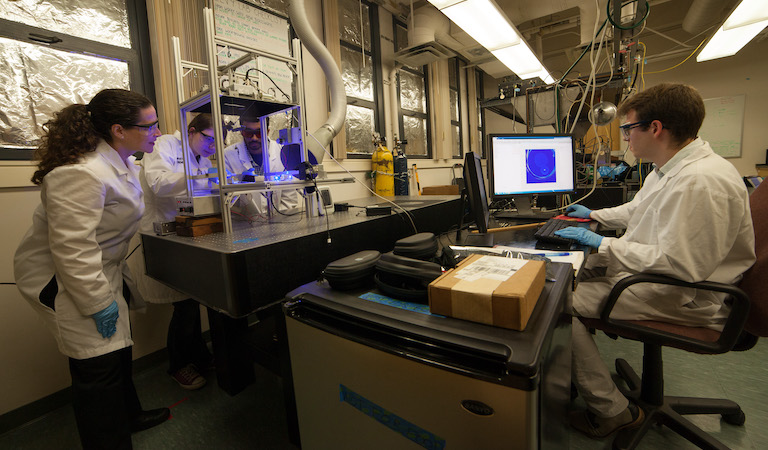Joint Major in Mathematics and Physics

Electives
Suggested math and physics electives of interest (not part of the major):
- MATH136 HM – Complex Variables and Integral Transforms
- MATH142 HM – Differential Geometry
- MATH181 HM – Dynamical Systems
- PHYS161 HM – Topics in Quantum Theory
Study Abroad Considerations
The following applies only to students who will be studying abroad for a semester in their junior or senior year:
- Sophomores may enroll in MATH198 HM – Undergraduate Mathematics Forum.
- Mathematics Colloquium requirement will not be waived.
- At most one semester of Physics Colloquium may be waived.